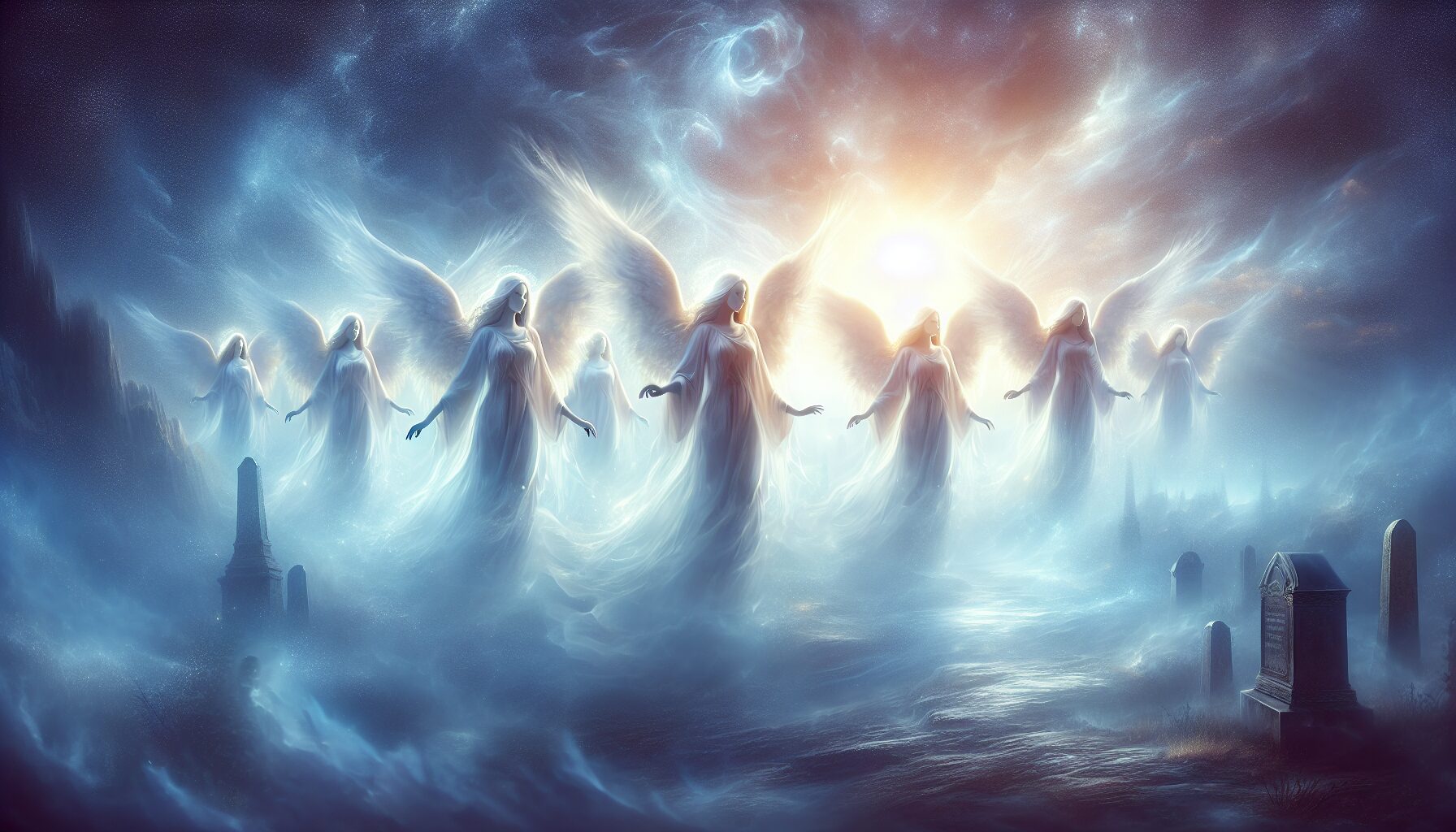Angels as Psychopomps: Guides Through the End
The concept of angels serving as psychopomps—guides for souls transitioning from the world of the living to the afterlife—has captivated human imagination for centuries. These celestial beings, often associated with divine protection and guidance, play a crucial role in various religious and cultural narratives. This article explores the role of angels as psychopomps, delving into their historical representations, cultural significance, and spiritual implications.
Understanding the Term “Psychopomp”
The term psychopomp is derived from the Greek words psyche (meaning “soul”) and pompos (meaning “guide” or “conductor”). Psychopomps are traditionally regarded as spiritual guides who lead the souls of the deceased to the afterlife. While these roles are often mythological or religious in nature, they offer profound insight into human conceptions of death and the afterlife. In many cultures, angels are considered quintessential psychopomps, facilitating a peaceful transition from life to death.
Angels in Religious Texts
Prominent religious texts across different cultures highlight the role of angels as intermediaries and guides for human souls. In Christianity, the Bible mentions angels as companions who carry the souls of the righteous to the afterlife. The Gospel of Luke (16:22) recounts:
“The time came when the beggar died and the angels carried him to Abraham’s side.”
This depiction emphasizes the angelic duty to escort souls to their eternal rest, underscoring their divine role in God’s celestial hierarchy.
In Islam, the archangel Azrael is often depicted as Malak al-Mawt, the Angel of Death, who separates the soul from the body at the moment of death. Islamic tradition asserts that Azrael is compassionate yet firm, ensuring a just transition from one realm to the next.
Angels as Psychopomps in Mythology
Beyond formal religious contexts, the motif of angels or angel-like beings as soul guides features prominently in various mythologies. In Greek mythology, the figure of Charon serves a similar role, ferrying the souls of the dead across the river Styx. Although not an angel, Charon’s function as a transporter of souls reflects the essential duties of a psychopomp.
Similarly, in Hindu mythology, Yama, the god of death, is accompanied by messengers known as the Yamadutas. These messengers perform the psychopomp function by guiding departed souls to Yama’s realm, paralleling angelic roles in other religions.
Angels: Bridging the Gap Between Worlds
Angels as psychopomps are not only significant for religious adherents but also for individuals seeking comfort in times of loss. Their portrayal as intermediaries who bridge the earthly and celestial realms offers hope and solace. Many people find comfort in the belief that angels watch over their loved ones, ensuring a smooth transition to the afterlife.
For instance, in the Jewish faith, the presence of angels during a person’s passing is symbolically represented during the Kaddish, a prayer for the deceased. This prayer reflects the community’s hope for divine assistance in the deceased’s afterlife journey, underscoring the protective and guiding role angels assume.
Cultural Interpretations and Artistic Representations
The image of angels as psychopomps has inspired countless works of art, literature, and music. Paintings such as William-Adolphe Bouguereau’s “Song of the Angels” depict serene celestial beings providing comfort and guidance. Such visual representations convey a sense of peace and divine intervention during the end-of-life process.
In Western literature, angels appear as compassionate guides in works ranging from Dante’s Divine Comedy to more contemporary novels like Mitch Albom’s The Five People You Meet in Heaven. These depictions reinforce the narrative of angels as protectors and spiritual guides through the unknown realms of the afterlife.
Angels as Symbols of Hope and Continuity
The concept of angels as psychopomps transcends religious boundaries, symbolizing hope, continuity, and the belief in an afterlife. For those who believe, angels assure a dignified and serene passage through death, offering a comforting sense of order and care. The presence of angels in death rituals and mourning practices highlights the universal quest for understanding and consolation in the face of mortality.
Conclusion
Angels as psychopomps encapsulate the human desire for reassurance and guidance at life’s end. Whether through scriptural references, artistic depictions, or cultural rituals, these divine guides offer a narrative of peace during the soul’s ultimate journey. Embracing angels as psychopomps allows individuals from diverse religious and cultural backgrounds to navigate the profound and mysterious transition from mortality to the afterlife.
